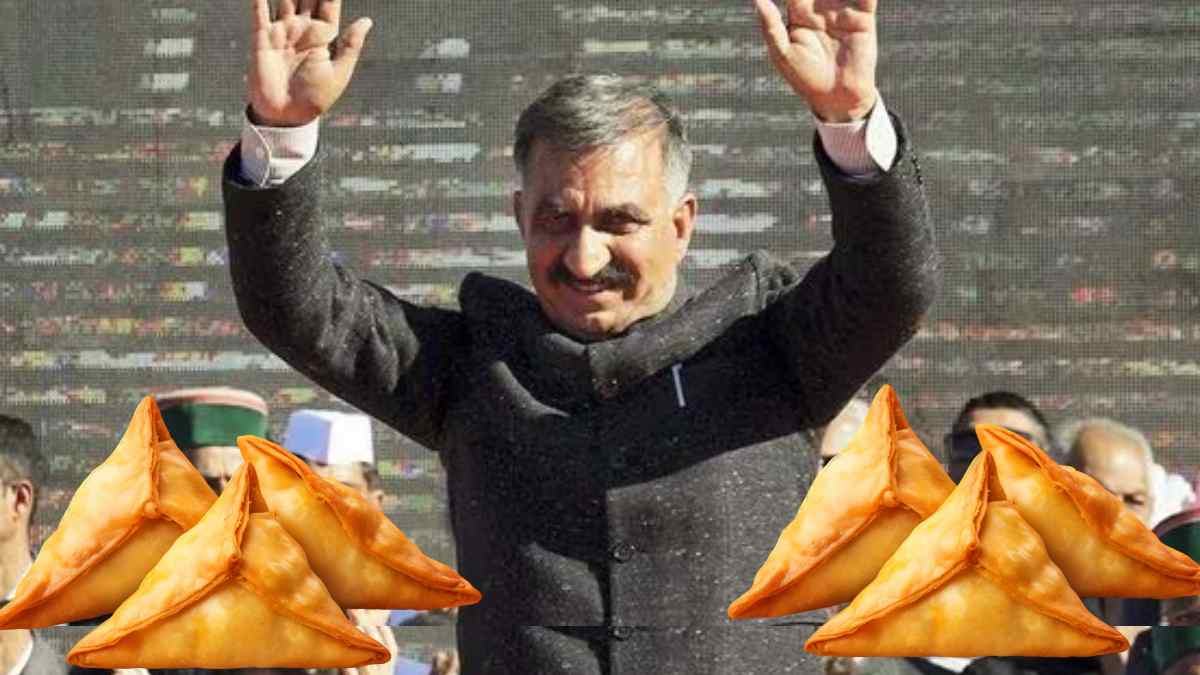The so-called “Samosa Scandal” in Himachal Pradesh is a classic case of a molehill being inflated into a mountain for political gain. What began as a minor mistake by a junior officer in the Crime Investigation Department (CID) has snowballed into a political spectacle, driven largely by the opposition BJP. In truth, this controversy says more about the state of our political discourse than any genuine governance failure. On October 21, snacks intended for Chief Minister Sukhvinder Singh Sukhu were mistakenly served to his security personnel instead. Three boxes of refreshments, including samosas, had been ordered from a high-end hotel in Lakkar Bazaar for the CM’s visit to the CID headquarters. However, due to a series of communication missteps, the snacks never reached their intended recipient. An internal investigation by the CID revealed that a senior officer had delegated the task of fetching the snacks to a sub-inspector, who in turn passed it on to an assistant sub-inspector (ASI) and a head constable. When the refreshments arrived at the CID office, confusion ensued about their intended destination. Tourism department staff, responsible for handling the food, were unsure if it was for the CM, and eventually, the snacks were sent to the mechanical transport section instead.
By all accounts, this incident was a minor logistical blunder—hardly the stuff of scandal. Yet, the opposition BJP saw an opportunity to pounce, turning the mix-up into a full-blown political crisis. BJP spokesperson Randhir Sharma wasted no time in criticizing the Congress government, claiming, “The state government is not concerned about the development of the state. Their only concern seems to be the Chief Minister’s samosa.” These remarks, though pointed, feel more like an attempt to score cheap political points than a genuine concern for governance. What is truly “mischievous” here is not the mix-up over samosas, but the way it has been weaponized by the BJP to discredit the ruling party. The CID’s internal investigation concluded that the incident was “anti-CID and anti-government,” suggesting that those involved may have had ulterior motives. Yet, there is no concrete evidence to support this theory beyond speculation.

The real question is why a trivial incident has consumed so much public attention. In a state grappling with economic challenges, infrastructure issues, and pressing social concerns, reducing political discourse to snacks and finger-pointing is not only unproductive but also a disservice to the people. The opposition’s eagerness to turn this mishap into a symbol of governmental dysfunction reflects a deeper trend in Indian politics—where the actual work of governance often takes a backseat to petty political theatrics. It is particularly disheartening to see how quickly social media latched onto the “Samosa Scandal,” with memes and commentary amplifying the issue beyond its real significance. In a digital age where narratives are shaped by hashtags and viral posts, even the most trivial events can be blown out of proportion, distorting public perception. The state’s residents deserve more from their leaders than squabbling over samosas. Both the ruling Congress and the opposition BJP should focus on addressing real challenges rather than engaging in this game of political brinkmanship. At a time when Himachal Pradesh faces genuine issues like unemployment and disaster management, the focus should be on governance, not snacks. In the end, the “Samosa Scandal” is a manufactured crisis—one that serves as a distraction from the actual concerns of the state. It’s time to move past these petty controversies and refocus on the work that truly matters: improving the lives of the people.




